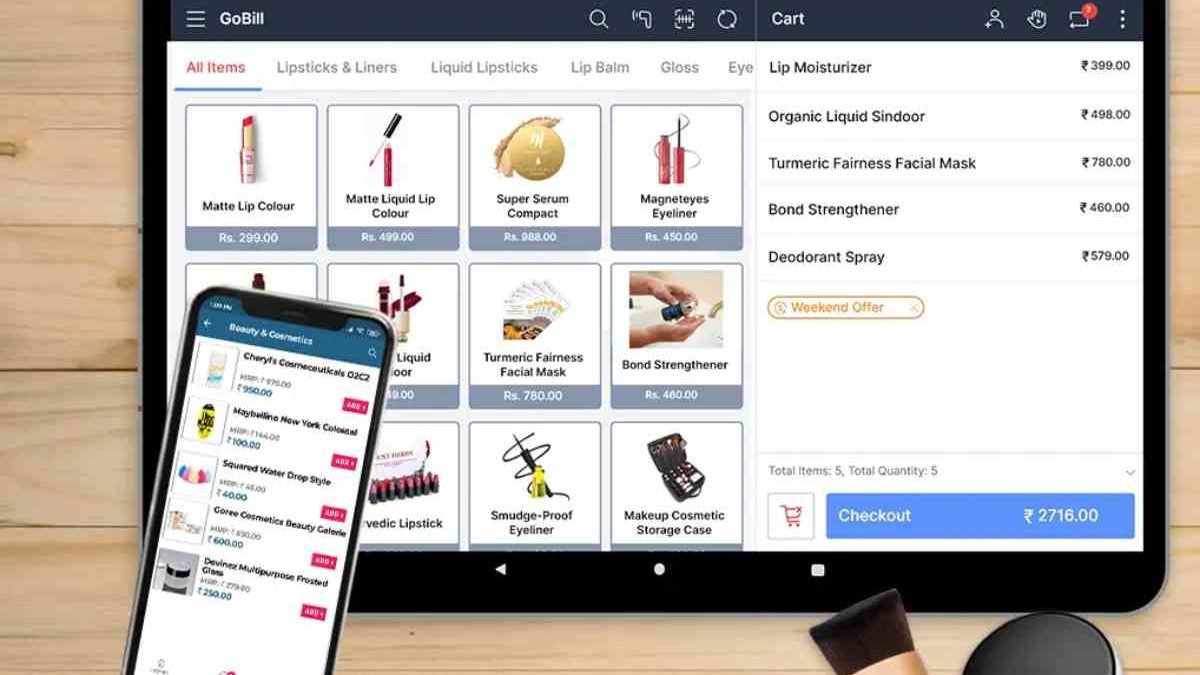Table of Contents
Introduction
The FMCG industry is based on a seamless retail and distribution process to ensure products reach consumers effectively. As demand is high and the product lifecycles are very short, optimizing business operations becomes crucial. To achieve this, FMCG software solutions have emerged as potential tools to integrate and automate key business functions, improving efficiency, reducing costs, and enhancing overall business performance.
Understanding FMCG Software Solutions
FMCG software solutions are dedicated platforms designed to streamline supply chain management, retail operations, and distribution processes. These solutions assist in managing inventory, automating order processing, optimizing logistics, and enhancing customer service. With features like real-time tracking, demand forecasting, and data analytics, FMCG companies can better navigate the competitive market.
Improving Retail Operations through FMCG Software
- Inventory and Stock Management
Efficient stock management is critical in the FMCG sector. FMCG software solutions help retailers maintain optimal inventory by providing real-time stock visibility, reducing wastage, and preventing stockouts or overstocking. Automated replenishment systems ensure timely restocking based on demand trends.
- Automated Order Processing
Manual ordering may lead to mistakes and delay fulfillment. Automation of order processing enables businesses to increase accuracy, improve faster fulfillment of orders, and enhance customer satisfaction. This feature ensures integration between retailers, suppliers, and distributors with ease.
- Multi-Channel Sales Integration
Retailers have become multi-channel players, with options ranging from traditional physical stores to online platforms and mobile applications. FMCG software solutions integrate these sales channels, ensuring that stock updates are accurate while maintaining a seamless customer experience.
- Customer Relationship Management (CRM)
A strong CRM system builds customer loyalty by providing customized services. These solutions allow for purchase history tracking, customer interaction management, and insights to enhance marketing strategies and sales performance.
Optimize Distribution with FMCG Software Solutions
- Route Optimization and Logistics Management
Proper logistics planning is the foundation of efficient distribution. FMCG software provides tools to reduce transportation costs, minimize delivery delays, and improve the overall supply chain.
- Real-Time Tracking and Fleet Management
Businesses can monitor shipments using IoT-enabled tracking for real-time visibility, which increases transparency and reduces losses. Fleet management features enhance vehicle efficiency, reducing fuel costs and improving delivery timelines.
- Automated Warehouse Management
Traditional warehouse operations often lead to inefficiencies. Automated warehouse management systems optimize space, reduce picking and packing errors, and improve operational efficiency, resulting in faster order fulfillment and reduced costs.
The Role of AI and IoT in FMCG Software for Retail & Distribution
- AI-Driven Demand Forecasting
The FMCG sector requires highly accurate demand forecasting. AI-enabled analytics predict consumer demand, allowing businesses to adjust production and inventory accordingly. This reduces the possibility of stockouts and minimizes wasted inventory.
- IoT Smart Warehousing
IoT provides real-time insights into warehousing conditions, ensuring optimal storage environments, such as temperature and humidity, which is crucial for perishable goods and maintaining product quality.
- Automatic Quality Control
AI-based quality control systems check for defects before products hit the market, reducing returns and building customer trust. These automated checks adhere to industry standards.
Cost Cutting and Return on Investment with the Implementation of FMCG Software
Investing in FMCG software solutions significantly reduces costs through streamlined operations and minimized inefficiencies. Some of the key advantages include:
- Operational costs reduced due to automation of manual tasks.
- Transportation costs decreased through optimized routes.
- Prevention of loss from overstocked or expired products.
- Improved cash flow management through automated financial transactions.
Compliance and Regulatory Benefits
FMCG businesses must ensure compliance with product safety and quality standards. FMCG software solutions help by:
- Ensuring accurate record-keeping for audits and compliance reporting.
- Providing traceability of products from manufacturing to distribution.
- Enabling automated compliance checks, avoiding regulatory breaches.
Case Studies: Success Stories of FMCG Software in Retail & Distribution
Several FMCG businesses have benefitted from implementing software solutions. Here are some success stories:
- A global food company reduced waste in inventory by 30% using AI-based demand forecasting.
- A beverage manufacturer increased order fulfillment rates by 40% using automated order processing.
- A personal care brand improved compliance management by integrating real-time regulatory updates into its ERP system.
- A dairy producer cut transportation costs by 25% through optimized routing and fleet management.
- A household goods manufacturer increased warehouse efficiency by 50% with IoT-enabled inventory tracking.
Future Trends in FMCG Software for Retail & Distribution
The future of FMCG software solutions continues to evolve with emerging technologies:
- Cloud-Based ERP Solutions: Offering greater flexibility and scalability.
- AI-Powered Automation: Enabling better decision-making and operational efficiency.
- Blockchain Integration: Enhancing transparency and security in supply chain transactions.
- Augmented Reality in Warehousing: Improving inventory scanning and management processes.
- Robotic Process Automation (RPA): Automating repetitive tasks like invoice processing and stock reconciliation.
- Green Supply Chain Initiatives: Using software to optimize energy usage and reduce waste.
Conclusion
Adopting advanced FMCG software solutions is no longer optional but a necessity in the highly competitive FMCG sector. These solutions improve efficiency in retail and distribution while streamlining operations and profitability, driving the future of FMCG software forward with AI, IoT, and automation. Embracing technology for sustained growth—now’s the time to optimize retail and distribution.


